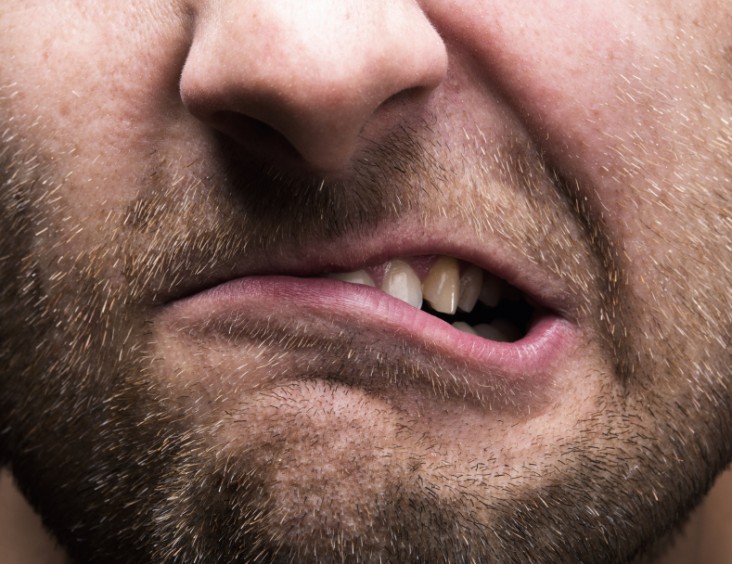
Have you ever woken in the morning and found your jaw was tight or sore? You might be grinding your teeth.
Teeth grinding, or bruxism, is a condition in which you grind, gnash, or clench your teeth, which can lead to pain in the jaw. It’s commonly believed to be caused by stress or anxiety, a not-so-off-the-mark diagnosis since tension and stress disorders go hand in hand. More likely, however, bruxism caused by an abnormal bite or missing or crooked teeth. Grinding your teeth at night? That’s called sleep bruxism – which is considered a sleep-movement disorder. People who clench or grind over night are more likely to have other sleep disorder, such as snoring and sleep apnea.
Bruxism, when mild, does not generally require treatment. But frequent or severe occurrences may lead to jaw disorders, headaches, damaged teeth, and other problems.
Worse still, those suffering from sleep bruxism may be unaware of it until complications develop, meaning it is important to know the warning signs and seek regular dental care.
How can you tell if you grind your teeth? A dull constant headache or sore jaw when you wake up in the morning is common sign of bruxism. Sometimes night grinding is so loud your loved one can hear it.
While teeth grinding might seem like a relatively harmless condition, some serious complications can arise if it’s not addressed. In some cases, chronic grinding has lead to fracturing or loosening of teeth, tooth loss, even tempomandibular joint disorders (TMD/TMJ). It’s possible for teeth to become worn down so far that the sufferer might require a bridge, crown, root canal, implant, or partial or complete denture to correct the damage.
Only your dentist will be able to diagnose the problem correctly. If you are experiencing tenderness, stiffness or pain in your jaw, be sure to let your dentist know at your next appointment.
